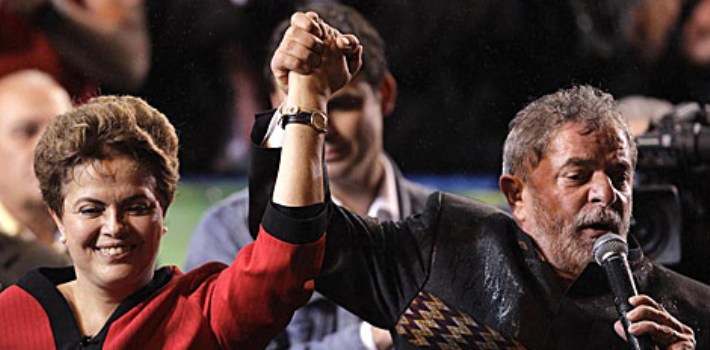
EspañolWith the return of democracy to Latin America at the end of the 1980s came constitutional regimes, the majority of which limited presidential reelection. However, this soon changed: following the example of the government (soon turned regime) of Alberto Fujimori in Peru in 1993, almost every country in the continent began to allow consecutive presidential reelection.
After the advent of Chavismo in Venezuela in 1999, reelection advanced even further in Latin America. Venezuela, an island of democracy in South America until the 1980s, had formerly impeded presidential reelection up until 10 years after the president had finished his first term in office.
Reelection had been an endemic illness throughout the entire 19th century in Venezuela; the refounders of the Constitution of 1961 wisely set limits on it. However, amid the wave of popular support that brought Hugo Chávez to power, the National Constituent Assembly of 1999 (labelled the “reelectuyente,” or reelecting assembly, by late Venezuelan historian Manuel Caballero) not only extended the presidential term from five to six years, but permitted immediate reelection as well.
An amendment approved by a referendum of dubious validity made indefinite reelection a possibility once more. Chávez didn’t live to make his dream of being eternal president a reality, and the unpopularity of his successor rules such a prospect out for Nicolás Maduro. Nevertheless, reelection, combined with unscrupulous use of executive power, has allowed Chavismo to effectively convert Venezuela into a one-party state.
Bolivia hasn’t been far behind the example of Venezuela. Evo Morales has just secured himself a third term in office, and is proceeding to dismantle all opposition presence in public life: witness the disqualification of hundreds of opposition candidates via a questionable legal maneuver.
Since 1993, no Latin-American president has lost an election for a second term.
The same thing is happening in Ecuador, where Rafael Correa can now prolong his rule beyond 2017 without holding elections. This thanks to a decision by the Constitutional Court allowing him to do so via an amendment in parliament, which he controls. Correa is likely waiting for the moment to deploy this ace up his sleeve, if the economic crisis besetting the country since the beginning of 2015 itself doesn’t give him ample excuse.
Despotism is knocking at the gates even of countries where checks and balances remain. In Argentina, President Cristina Kirchner attempted to facilitate her indefinite reelection in vain, while Brazil’s former President Lula Da Silva (2003-2011) hankers after a third term, and talks about returning to power in 2018.
In Colombia, where non-reelection was formerly an institution, Álvaro Uribe won a second term after constitutional reform secured by his popularity, and presidents in Chile (Michelle Bachelet), Uruguay (Tabaré Vásquez), and Perú (Alan García), have all been reelected, although not in an immediate form.
Since 1993, when Fujimori was able to establish presidential reelection in Peru, no Latin-American president has lost an election for a second term (Fujimori threw in the towel after elections in 2000 after it emerged he’d committed fraud). Due to unevenly applied limits put on electoral campaigning, the incumbent always has the advantage over the challenger. In Venezuela, Ecuador, and Bolivia, if you take on the president at the polls, you take on the entire power of the state.
After the 2012 reelection of Hugo Chávez, one journalist who went to Antímano — the poorest, most populous barrio of the Venezuelan capital — reported what people were saying. “We vote for the government because it can give us things. What are the opposition going to give us?” In Antímano, 80 percent of the votes went to Chávez. Another explanation: “six more years of cheap chicken,” they told him. With inflation at 100 percent in 2014, these votes should by now rightly go to jailed opposition leader Leopoldo López.
In countries such as Venezuela, Ecuador, and Bolivia, reelection has led to the capture of all the institutions of the state, including those that are supposed to be independent. The rampant corruption we’re witnessing across the region is only one result.

Even countries like Brazil, Chile, and Colombia are experiencing the phenomenon. Four consecutive terms for Brazil’s Workers’ Party (PT) have led to the Operation Car Wash scandal, implicating scores of government politicians, and even stretching to President Dilma Rousseff.
In Chile, the Caval case has stained the record of President Michelle Bachelet thanks to alleged wrongdoing by her son Sebastián Dávalos, and tarnished the image of supposedly the most transparent nation in Latin America.
Just as Bachelet was reelected after a period away from office, the contenders in Peru’s 2016 presidential race are almost certainly going to be García (who would thus secure his third term in power) and Alejandro Toledo (his second). Although both have proven their democratic credentials, it remains unsettling that no new leaders have emerged.
Colombia too has long lived under the shadow of the battle between President Juan Manuel Santos and his former patron Álvaro Uribe.
On all sides, the waters of democracy — which depend on new leaders, new ideas, and constant change — are stagnating. Reelection is no guarantee of governments free from corruption — Mexico is the clearest example of this — but it at least creates a certain humility and fear among those who govern.
As Venezuelan-born Simón Bolívar, who went on to spearhead the liberation of South America, told the Congress of Angostura in 1819: “Nothing is as dangerous as letting the same citizen stay in power for a long time. The people become accustomed to obeying him, and he becomes accustomed to giving them orders, from which usurpation and tyranny arise.”
Two centuries later, Latin America is at a crossroads: between imperfect democracies and corrupt, neo-totalitarian states. The poor country of the Liberator’s birth is a perfect example.
Translated by Laurie Blair. Edited by Guillermo Jimenez.
 Versión Español
Versión Español












